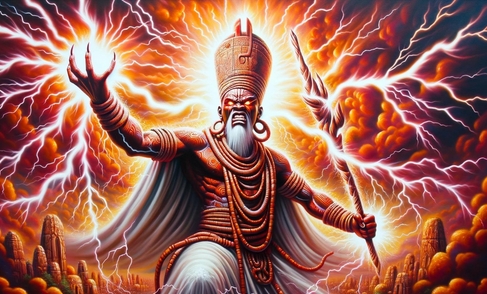
support@yorubalibrary.com
+2348073529208, 07038599574

The Yoruba people of southwestern Nigeria possess a rich and intricate belief system that encompasses various aspects of life and death. These beliefs are deeply rooted in their cultural practices, spiritual traditions, and cosmology. This article explores the core Yoruba beliefs about life, death, and the afterlife, highlighting the cultural and religious practices that underpin these views.
The Concept of Life in Yoruba Belief
The Role of Olodumare
In Yoruba cosmology, Olodumare is the supreme deity, the source of all life and the creator of the universe. Olodumare is considered the giver of life and the ultimate authority over all beings. Yoruba people believe that every individual’s destiny (Ayanmo) is pre-ordained by Olodumare, and each person is expected to fulfill their purpose on earth.
The Significance of Ori
Ori, often translated as "head" or "inner head," represents a person’s spiritual intuition and destiny. It is believed that Ori guides an individual’s actions and decisions. A well-aligned Ori is essential for achieving success, happiness, and fulfillment in life. Yoruba people engage in rituals and prayers to honor and seek the blessings of their Ori.
The Role of Ancestors
Ancestors hold a significant place in Yoruba beliefs about life. They are considered protectors and guides for the living. Yoruba people perform rituals and offer sacrifices to honor their ancestors, seeking their guidance and blessings. Ancestral veneration is a way to maintain a connection between the living and the dead, ensuring that the wisdom and spirit of the ancestors continue to influence the present generation.
Yoruba Beliefs about Death
Transition to the Afterlife
Death, in Yoruba belief, is not seen as an end but as a transition to another realm of existence. It is believed that after death, the soul continues its journey to the afterlife, where it joins the ancestors. This transition is considered a natural part of the life cycle, and the deceased are honored through elaborate burial ceremonies and rituals.
The Role of the Orisha
Orisha are deities that serve as intermediaries between humans and Olodumare. They play a crucial role in the lives of the Yoruba people, including aspects of death and the afterlife. Some Orisha, such as Orunmila (the deity of wisdom and divination), are called upon to provide guidance during the rites of passage from life to death. Rituals involving Orisha are performed to ensure a peaceful transition and acceptance into the ancestral realm.
Funeral Rites and Ceremonies
Funeral rites in Yoruba culture are elaborate and significant, reflecting the belief in the continuation of the soul. These rites often include:
• Iṣedálẹ̀: The initial funeral rites, which involve preparing the body, prayers, and sacrifices to guide the soul to the afterlife.
• Ìṣẹ̀ṣe: Ceremonial feasts and celebrations of the deceased’s life, where family and community members gather to honor the deceased.
The Concept of Reincarnation
Akudaaya
Reincarnation, known as "Akudaaya" or "Atunwaye," is a key element of Yoruba beliefs about death and the afterlife. It is believed that souls can reincarnate into new bodies, continuing their journey and fulfilling their destiny across multiple lifetimes. This cycle of birth, death, and rebirth is seen as a means of achieving spiritual growth and enlightenment.
Abiku
Abiku refers to spirits of children who are believed to die and be re-born repeatedly. Families with an Abiku child often perform specific rituals and offer sacrifices to appease these spirits and ensure the child’s survival. This belief underscores the Yoruba view of life and death as interconnected and cyclical processes.
Spiritual Practices and Rituals
Egungun Festival
The Egungun festival is one of the most significant Yoruba ceremonies dedicated to ancestor worship. During the festival, masqueraders representing ancestral spirits (Egungun) perform dances and rituals. These ceremonies are believed to invoke the presence of the ancestors, offering blessings and protection to the living community.
Divination Practices
Divination, particularly through the Ifa oracle, plays a crucial role in understanding life and death in Yoruba culture. Diviners, known as Babalawo, interpret messages from the Orisha and ancestors to provide guidance on various aspects of life, including health, prosperity, and the afterlife. Divination rituals are conducted to seek clarity and support from the spiritual realm.
Conclusion
Yoruba beliefs about life and death are profound and deeply ingrained in their culture and spirituality. These beliefs emphasize the interconnectedness of the physical and spiritual realms, the significance of destiny and ancestral guidance, and the cyclical nature of existence. Understanding these beliefs provides valuable insights into the Yoruba way of life and their perspective on the eternal journey of the soul. Through rituals, ceremonies, and a strong sense of community, the Yoruba people honor their past, navigate their present, and prepare for the future, ensuring that the legacy of their ancestors continues to influence and guide them.

Learn about the Yoruba concept of Ìwà Pẹ̀lẹ́ (good…

Learn special praises for Divine Being and Creator…